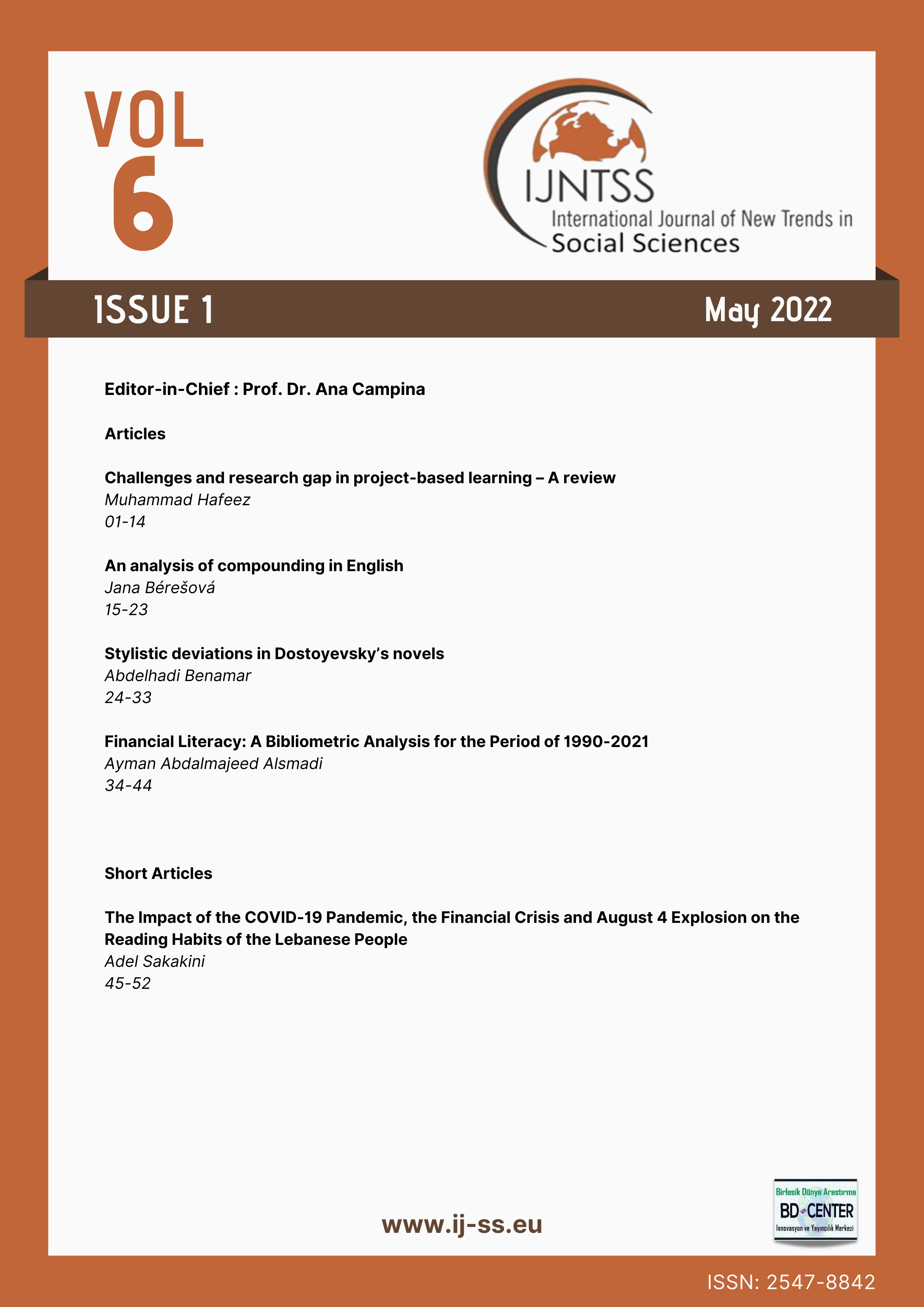Stylistic deviations in Dostoyevsky’s novels
Main Article Content
Abstract
The use of stylistic deviations in writings by authors not only makes the novel enjoyable but also helps to expand the reader’s understanding of the language of the novel. However, a brief knowledge of the author’s background and the stylistic approach used by the author helps the reader to understand and appreciate the novel better. Novels authored by Dostoyevsky are known to follow stylistic deviations. This study aims to investigate the stylistic deviations in Dostoyevsky’s novels, his personality and what influenced his writing styles. The study followed a stylistic analysis approach in conducting a literature review. The novels of Dostoyevsky and previous literature were used to analyse Dostoyevsky’s writing methods and analysis style. It was established that Dostoyevsky’s life experiences were expressed in his novels through his stylistic deviations.
Keywords: Deviations, Dostoyevsky, insanity, polyphony, stylistic analysis;
Downloads
Article Details

This work is licensed under a Creative Commons Attribution 4.0 International License.
Authors who publish with this journal agree to the following terms:
- Authors retain copyright and grant the journal right of first publication with the work simultaneously licensed under a Creative Commons Attribution License that allows others to share the work with an acknowledgement of the work's authorship and initial publication in this journal.
- Authors are able to enter into separate, additional contractual arrangements for the non-exclusive distribution of the journal's published version of the work (e.g., post it to an institutional repository or publish it in a book), with an acknowledgement of its initial publication in this journal.
- Authors are permitted and encouraged to post their work online (e.g., in institutional repositories or on their website) prior to and during the submission process, as it can lead to productive exchanges, as well as earlier and greater citation of published work (See The Effect of Open Access).
